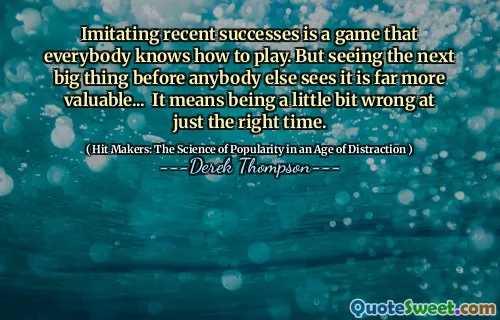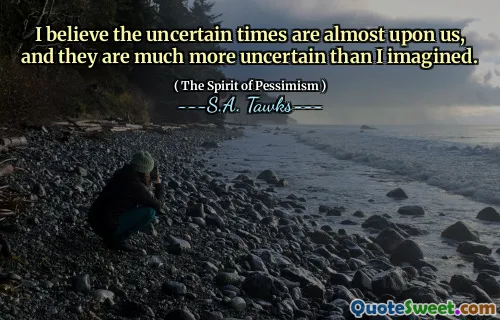She doesn't think it's a good idea to know the future, because you can hardly ever change it, so why suffer twice?
In "The Robber Bride," Margaret Atwood presents a character who expresses skepticism about the value of knowing one's future. The idea is that foreseeing what lies ahead can lead to unnecessary worry and stress, since many outcomes are beyond our control. This perspective emphasizes the futility of anticipating future troubles that cannot be altered, suggesting that awareness of the future can lead to suffering in the present.
The quote encapsulates a broader theme in the book, highlighting the tension between agency, fate, and the human experience. By suggesting that knowing the future can result in dual suffering — both from the knowledge of potential pain and the inevitability of facing it — Atwood invites readers to consider the merits of living in the moment instead of being burdened by what might come to pass.


